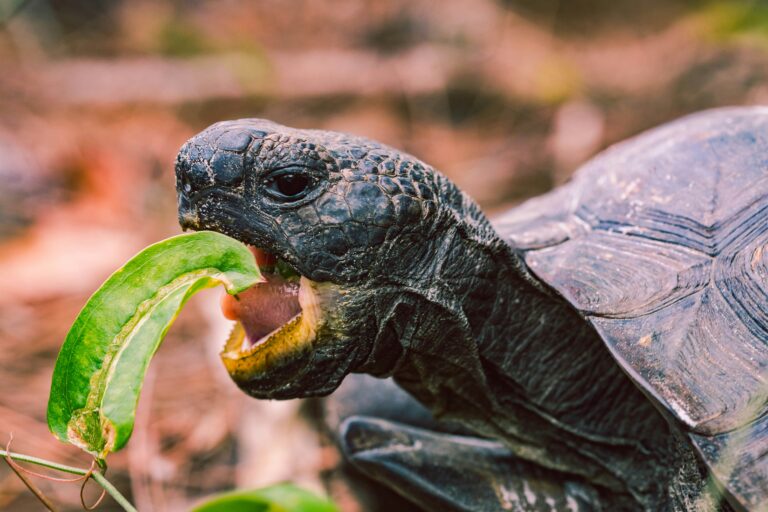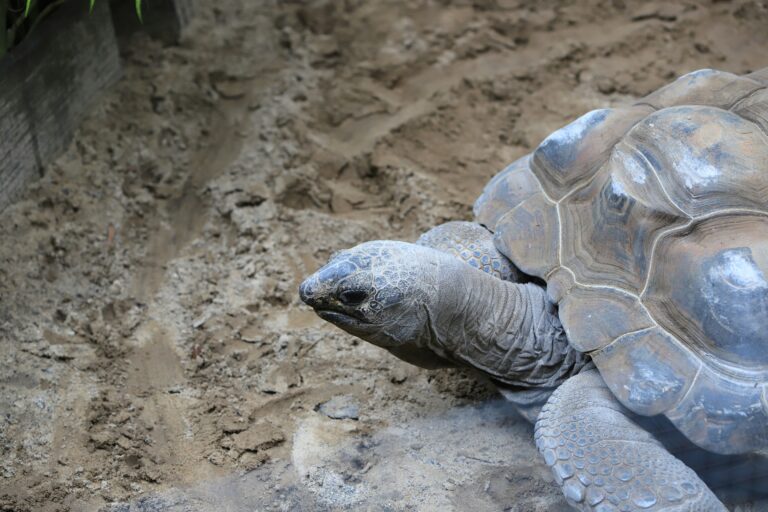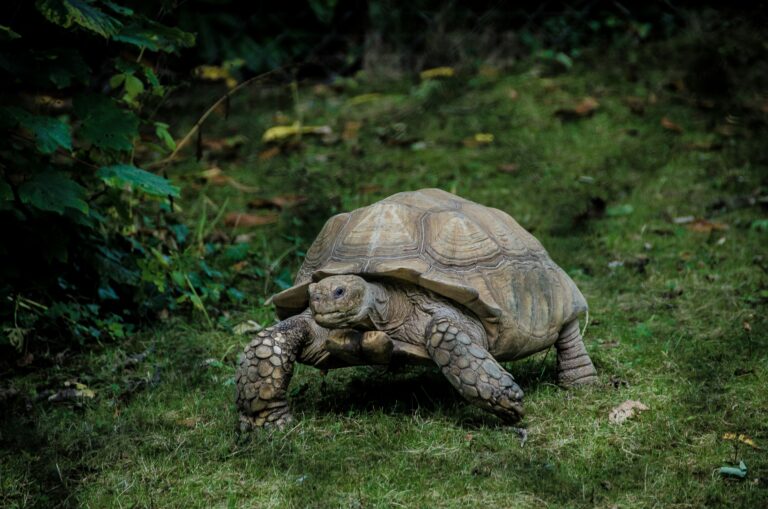What do Sulcata tortoise eat?

Sulcata tortoises, also known as African spurred tortoises, are fascinating creatures with great stature, unusual looks, and mild disposition. To maintain the health and lifespan of these gorgeous reptiles, prudent keepers must first understand their food requirements. We will examine the eating patterns of their in this extensive guide, providing insight into what these amazing animals consume and how to provide them with a well-balanced diet in terms of nutrients.
Understanding the natural diet of Sulcata tortoises:
Sulcata tortoises, native to sub-Saharan Africa’s arid regions, have adapted to live on a diet rich in fibrous plants. These tortoises obtain their nourishment from a range of grasses, herbs, and succulent plants that they forage for in their native habitat. Their nutritional preferences are shaped by their arid environment, which favors plants with high fiber content and low moisture.

Important components of Sulcata tortoise diet:
To replicate their natural diet in captivity, it is important to provide sulcata tortoises with a diverse array of plants that mimic the nutritional profile of their wild forage. Here are the main ingredients of a balanced sulcata tortoise diet:
A sulcata tortoise’s diet should consist primarily of fibrous greens. Superb options high in vital nutrients, vitamins, and minerals include kale, collard greens, mustard greens, and dandelion greens. These greens provide fiber for healthy digestion and contribute to intestinal health in sulcata tortoises.
Hay and grasses:
Sulcata tortoises need to include hay and grasses in their diet to mimic their natural foraging habits. Timothy hay, Bermuda grass hay, and orchard grass hay are all good options for roughage while also improving tooth health. Fresh, pesticide-free grasses from your yard can also be given as periodic treats to enrich their nutrition and stimulate natural activities.
Vegetables:
Adding a variety of vegetables to a sulcata tortoise’s diet improves nutrition and flavor. These tortoises enjoy vegetables like carrots, squash, bell peppers, and zucchini, which provide them with additional vitamins and minerals. However, it is critical to feed veggies in moderation, as some species may be high in oxalic acid or phosphorus, which can be detrimental in excess.
fruits:
Fruits can be provided to sulcata tortoises in modest amounts but should be treated as rare treats rather than dietary staples. Fruits that are high in natural sugars and vital nutrients include melons, strawberries, raspberries, and papayas. Fruits, on the other hand, should be eaten sparingly due to their high sugar content, which can contribute to obesity and digestive problems if ingested in excess.
Calcium supplements:
are vital for sulcata tortoises to maintain shell health and overall well-being. Give them calcium supplements in the shape of cuttlebones, blocks, or powdered calcium dust to sprinkle over their diet to guarantee a sufficient intake of the mineral. Furthermore, exposure to natural sunshine or UVB lighting is essential for normal calcium metabolism and vitamin D synthesis in sulcata tortoises.
Water:
Sulcata tortoises rely on their food for hydration, but availability to clean water is still necessary. Make sure they always have access to a small water dish for drinking and soaking. Additionally, soaking promotes skin and shell health by preventing dehydration.

Guidelines for Meal Planning and Feeding:
Sulcata tortoises require careful consideration of their nutritional needs, dietary preferences, and environmental considerations when creating a well-balanced food plan. The following pointers will assist you in creating a feeding schedule specific to your tortoise’s requirements:
1: To ensure nutritional diversity, provide a range of greens, grasses, vegetables, and occasionally fruits.
2: Make frequent dietary changes to keep them from becoming bored and to provide them with variety.
3: Obesity can cause health issues in sulcata tortoises, so keep portion amounts under control and prevent overfeeding.
4: Add calcium supplements to their diet to help maintain the health of their bones and shells.
5: Give them access to UVB or natural sunshine to help their bodies properly metabolize calcium.
6: Provide fresh water daily and encourage regular soaking to avoid dehydration.
Nutritional Requirements:
Sulcata tortoises have simple nutritional requirements, however keepers may face difficulty feeding them. Addressing these difficulties proactively can aid in maintaining optimal health and well-being:
1: Sulcata tortoises require a high-fiber diet to maintain their digestive health. On the other hand, some people could be picky eaters or show a preference for specific foods over others. Try providing a range of options and routinely switching up their diet to keep them from getting bored to promote the consumption of fibrous greens.
2: Insufficient calcium intake can cause metabolic bone disease (MBD) and other health problems in sulcata tortoises. Make sure kids get enough calcium from supplements and UVB rays from the sun to support healthy calcium metabolism and vitamin D synthesis. Frequent veterinary examinations can assist in detecting and resolving any possible issues or health problems.
3: Overfeeding and providing calorie-rich treats can cause obesity in sulcata tortoises, resulting in health issues such as shell deformities and organ failure. Monitor meal sizes, restrict the number of fruit treats, and promote regular activity through supervised outside time or indoor enrichment activities.
To summarize, understanding the dietary requirements of sulcata tortoises is critical for providing them with a nutritionally balanced and enriching diet. You may maintain their health and well-being in captivity by providing a variety of fibrous greens, grasses, vegetables, and fruits, as well as calcium supplements and access to natural sunlight or UVB lighting. Keep an eye on their diet, take proactive measures to address any dietary issues, and seek the advice of a reptile veterinarian for specific recommendations. Your sulcata tortoise can have a long and happy life if you give it the care and attention it needs.
Read More: Are Baby goats born with teeth?